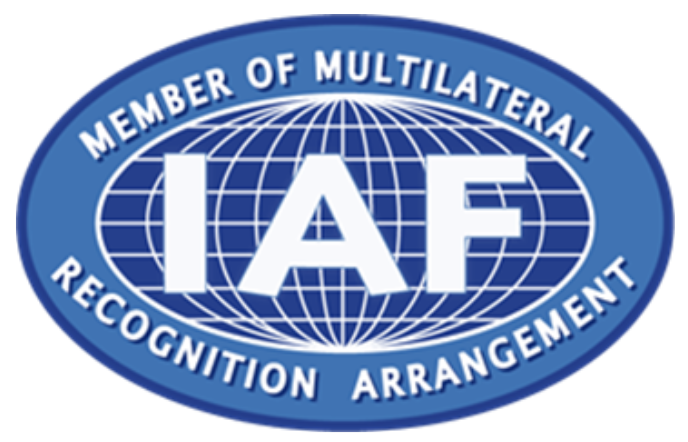Talk To Our Cyber Expert For Free.
IRDAI Compliance Audit





Overview : IRDAI Compliance Audit
As per the guidelines of the IRDAI (Insurance Regulatory and Development Authority of India), insurance companies are required to implement robust measures to safeguard sensitive information. With the increasing reliance on IT assets and the growing cyber threat landscape, it is crucial for insurers to establish effective protocols and procedures to prevent data leakage and theft. The IRDAI emphasizes the importance of cyber security recommendations in mitigating internal and external risks faced by insurers and enhancing cyber fraud prevention procedures.
On October 31, 2016, the IRDAI released guidance for the development of a comprehensive information and cyber security strategy specifically tailored to the insurance industry. Subsequent revisions have been introduced to ensure the implementation of adequate cyber risk mitigation mechanisms.
At Qunit, we understand the significance of IRDAI compliance for insurance companies. Our expertise lies in assisting insurance organizations in meeting the stringent requirements set forth by the IRDAI and enhancing their cyber security posture. By partnering with us, insurers can benefit from our in-depth knowledge of the regulatory landscape and our ability to tailor comprehensive information and cyber security strategies to their specific needs.
ISO 27001
What is ISO 27001?
ISO 27001 is a globally recognized security standard that provides a framework for establishing an effective Information Security Management System (ISMS). It is part of the ISO/IEC 27000 series of standards published by the International Organization for Standardization (ISO) and International Electrotechnical Commission (IEC).
The ISO 27001 standard focuses on technical risk management controls and helps organizations establish, implement, operate, monitor, review, maintain, and improve their ISMS. It takes a risk-based and technology-neutral approach, allowing organizations to tailor their security controls according to their specific risks and needs.
Rather than prescribing a fixed list of controls, ISO 27001 provides a checklist of measures to consider and offers best practice recommendations outlined in ISO 27002. This flexible approach enables organizations to implement controls that align with their unique security requirements.
Even if your organization is not pursuing full ISO 27001 certification, familiarizing yourself with the standard and its controls is essential for following security best practices. Understanding the guidelines can help ensure that your organization adopts effective security measures and safeguards sensitive information.
CONTROLS
ISO 27001 Annex A controls
- Risk Mitigation: Systematically identifying and assessing risks enables organizations to implement appropriate controls to mitigate those risks effectively.
- Compliance Assurance: Adhering to ISO/IEC 27001 requirements helps organizations demonstrate compliance with information security standards and regulatory obligations.
- Continual Improvement: The ongoing management process encourages organizations to continually assess and adapt their security controls to address new and emerging risks.
- Stakeholder Confidence: By effectively managing information security risks, organizations can inspire confidence in their customers, partners, and stakeholders, building trust and credibility.
REQUIREMENTS
IRDAI Compliance Audit requirements
We offer a range of services to support IRDAI compliance, including:
Risk Assessment and Gap Analysis
Policy and Procedure Development
Implementation and Compliance Monitoring
Training and Awareness Programs
Get a quick quote
Benefits

Enhanced Data Protection

Mitigated Cyber Risks

Protect Data Leakage

Regulatory Compliance
METHODOLOGY
Our Approach to IRDAI Compliance Audit
- 01. Requirement Analysis
- 02. Gap Assessment
- 03. Compliance Strategy Development
- 04. Implementation and Remediation
- 05. Ongoing Compliance Monitoring
We begin by thoroughly analyzing the IRDAI compliance requirements applicable to the insurance company. This involves studying the IRDAI guidelines, understanding the specific obligations and recommendations, and identifying the key areas that need to be addressed.
We conduct a comprehensive assessment of the organization’s existing information and cyber security practices, policies, and procedures. This helps us identify any gaps or deficiencies in relation to the IRDAI compliance requirements. We use industry best practices and benchmarks to evaluate the organization’s security posture.
Based on the findings from the requirement analysis and gap assessment, we develop a customized compliance strategy for the insurance company. This includes defining the necessary controls, policies, and procedures to align with the IRDAI guidelines. We work closely with the organization to ensure that the strategy is practical, effective, and tailored to their specific needs.
We support the insurance company in implementing the recommended controls, policies, and procedures to achieve compliance with the IRDAI requirements. Our team assists in remediating identified gaps and vulnerabilities, ensuring that the organization’s information and cyber security measures are in line with the IRDAI guidelines.
We provide continuous monitoring and support to ensure the insurance company’s ongoing compliance with the IRDAI regulations. This includes periodic assessments, audits, and reviews to identify any new risks or changes in the regulatory landscape. We help the organization stay up-to-date with evolving security threats and make necessary adjustments to maintain compliance.
WHY US?
Why choose Qunit?
- Expertise and Experience
- In-depth threat analysis and remediation guidance
- Customized Approach
- Avg. >9/10 customer service, 95% retention rate
Frequently Asked Questions (FAQ) - IRDAI Compliance Audit
IRDAI compliance refers to the adherence to the guidelines and regulations set forth by the Insurance Regulatory and Development Authority of India (IRDAI) to ensure the protection and security of sensitive information within the insurance industry.
IRDAI compliance is important for insurance companies as it helps safeguard sensitive information, mitigates cyber risks, ensures regulatory compliance, enhances data protection, and fosters customer trust.
The key requirements of IRDAI compliance include implementing robust information and cyber security measures, conducting regular IT audits, developing comprehensive security policies and procedures, and adhering to the guidelines outlined by the IRDAI.
Qunit can assist insurance companies in achieving IRDAI compliance by providing services such as requirement analysis, gap assessment, compliance strategy development, implementation support, ongoing compliance monitoring, and employee training programs.
The process of obtaining IRDAI compliance involves understanding the specific compliance requirements, assessing the organization’s current security practices, developing a tailored compliance strategy, implementing necessary controls and policies, and conducting regular audits to ensure ongoing compliance.
The timeline to achieve IRDAI compliance can vary depending on the size and complexity of the organization. It typically involves an assessment phase, remediation of identified gaps, implementation of necessary controls, and ongoing monitoring, which may span several weeks to months.
